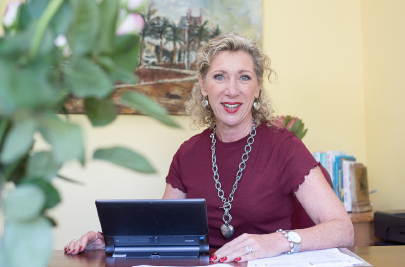Choosing a Coach
|
Coaching is a new emerging profession, and is the fastest growing industry in the world. Consequently choosing a coach may seem to be something of a minefield. Despite this, most coaching clients report being satisfied with their coaching. However, there have been some disappointments and even some horror stories of really bad experiences coaching clients have had. The following suggestions will remove some of the uncertainty and enhance your chances of making a good choice:
|

- Choose someone who is a member of COMENSA (www.comensa.org.za) and is therefore bound by professional practice and a code of ethics. This will give you peace of mind around your coach’s professionalism and credibility, specifically in the South African context. Professionals in all disciplines make a point of becoming members of professional bodies.
- Meet several coaches (at least 3) and find one with whom you “click” and have a rapport with. The power of coaching is in the relationship between coach and client, so chemistry is important. Your key indicators here are the quality of the coach’s listening, and the clarity with which they have understood what you wish to achieve through coaching. If your coach talked non-stop for an hour it is not a good sign! Even after this first meeting you should feel clear and energized and have learned something new about yourself.
- Choose a coach who has sufficient experience. If you are an executive, what experience does your coach have in Executive Coaching? If you are in business, what business coaching experience does your coach have? If you have reached a crossroad in your life, what experience does your coach have in the life coaching arena? You may choose to work with a coach who has recently started their practice, but they should be open about this and their fees should reflect this.
- Is your coach willing to give you references and allow you to contact those references? While the coaching relationship is a confidential one, beware the coach who will not give you references.
- Find out how your coach works. Does he meet weekly, fortnightly or monthly? Does he have a philosophy about people that regards them as whole and healthy and full of potential, or does he seem to have a philosophy that says that you need fixing and he’s the one to do it? The latter philosophy should be a red flag. Does it sound like your coach’s style matches your needs? Where does your coach prefer to work? It is often preferable NOT to meet in your normal place of work but to either go to the coach’s premises or some neutral venue. Many coaches meet their clients in coffee shops. This is fine. Just agree on who will buy the coffee!
- Find out how your coach will assess your needs, how you will agree on outcomes and how you will measure success. Will anyone else be involved? Who will report to them, about what and how will this happen?
- What commitment does the coach ask for? Coaching is a process and not an event. Your coach should ask you to commit to a specific period of time. As a guideline, you should be willing to commit to 3 – 6 months. If you or your coach are not willing to make this commitment it will impact on the effectiveness of the process. Make sure you find out how your coach charges and what their requirement is in terms of rescheduling or cancelling appointments.
- Does your coach seem to have a lot of common sense or wisdom? Do you have a sense of being in safe hands? Do you think this coach would have the courage to be tough with you if you needed it? Your coach should have both heart and backbone.
- Your coach should also be willing to talk about coaching assignments that did not go well and why they did not go well. Does your coach blame the client or do they at least share responsibility for this?
- What qualifications does your coach have? Have they studied as a coach? Do they continue to invest in their own professional development?




